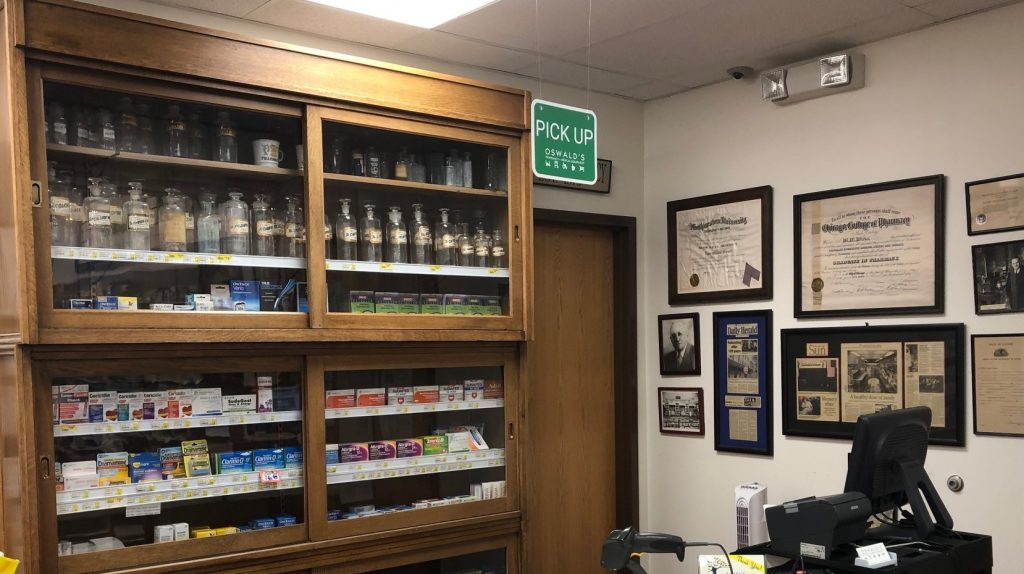Picture This: You’ve just finished an appointment with your doctor – an appointment you had to make 3 months in advance. She’s just given you a prescription for your eczema. The prescription is for a medication that you’ve never had before (but you’re pretty sure you’ve seen a commercial for it on TV).
It feels like you’ve tried everything to treat your eczema, so you’re eager to try a new medication that the doctor said has worked for some of her other patients. The doctor explains that the medication is expensive (over $600 for just one small tube!), but that your insurance should cover it.
After your appointment with the doctor, you bring the prescription to your pharmacy and ask to wait for it—you’re eager to get started and see the results. A few minutes later, however, the pharmacist explains to you that your insurance company requires a “prior authorization,” and is not willing to pay for the medication right now. Your heart drops. A prior authorization?? What does this mean?
What is a Prior Authorization?
A prior authorization (or “prior auth”/ “PA” in the pharmacy world) is an OK required from an insurance company when they don’t want to pay for a specific prescribed medication. Let’s go over how the prior authorization process works at a pharmacy level.
When we submit a prescription to your insurance and see that it requires a prior auth, we contact your doctor to let them know. Sometimes insurance companies will suggest alternatives that are covered, so we can let the doctor know that something else may be covered. If there is no obvious alternative, the doctor must contact your insurance company and explain why the prescription is medically necessary.
After the call with your doctor, the insurance company decides whether they will cover all, part, or none of the medication’s total cost. The prior authorization process can take up to 7 business days (and sometimes even longer!). After the decision, the results are usually not communicated directly back to us (your pharmacy). The insurance company will call you or your doctor regarding the outcome of the prior authorization.
Why do Prior Authorizations Exist? And What Kind of Medications may Require One?
Insurance companies have started to require more prior authorizations for a few reasons. The most common reasons for prior auths are medications that have cheaper alternatives. Some other reasons include medications that:
- Should only be used for specific health conditions
- Can potentially be unsafe when combined with other medications
- Have the potential to be abused
- Are used for cosmetic purposes
Insurance companies may also require a prior authorization if you haven’t tried other alternatives before trying the prescribed medications (usually referred to as “step therapy”). For example; if your doctor prescribes you an expensive medication, but there are cheaper medications available that have shown to be as effective, your insurance company may require a prior authorization for the more expensive medication if you haven’t tried the cheaper one first.
What are the Possible Results of a Prior Authorization?
There are two different possible outcomes to a PA, and it can take 5-10 business days for your insurance provider to reach a decision. You can try to speed up the process by contacting your doctor and letting them know that a prior authorization request was sent over. You can also try to call the insurance company and get the status or more information while you wait for them to decide.
The first result is that they approve the authorization request and agree to cover some or all of the cost of the medication.
Again, when your insurance provider makes their decision (regardless of outcome), they will either contact you or the doctor, but not your pharmacy. If you are waiting for a prior authorization and hear from the insurance company that it was approved, it’s very important to give your pharmacy a call.
The other possibility is that your insurance provider denies the authorization, which means they won’t cover any of the cost for your medication.
If your authorization is rejected, you have a few options on how to proceed. You can pay for the medication out-of-pocket, which means you will pay the entire cost of the medication. Medications that require PAs are often expensive, so this may not be the best option.
If the medication is prohibitively expensive, ask your doctor to prescribe a similar medication that may be covered by your insurance. Unfortunately, neither your pharmacy nor your doctor has access to insurance pricing formularies, but you can call your insurance company directly and ask which alternative medications may be covered.
There is a third option available for rejected prior authorizations. If the rejected medication is very important, try submitting an appeal to your insurance provider. Your doctor can review why the authorization was rejected and submit an appeal, but this rarely happens and it often doesn’t change the decision made by the insurance company.
Get More Information From Your Pharmacist
Prior authorizations can seem scary, especially when you don’t know what they are. They can be a lengthy process, but at Oswald’s Pharmacy we are always willing to walk you through what the next steps will be to get your medication. If you have any questions about prior authorizations, feel free to give us a call or stop by the pharmacy.


